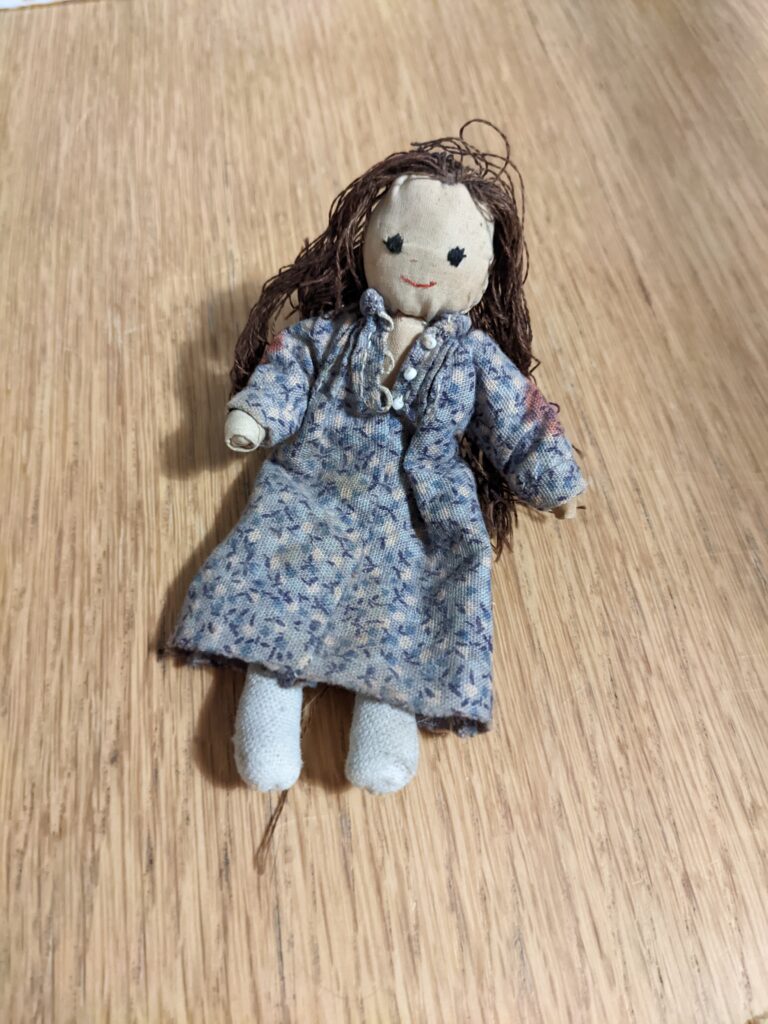
So where should we start?
To a large extent, this is a record of my personal journey, what I’ve discovered and what’s helped me – so let’s start where I began which was during my training to be a counsellor.
It was a challenging time in my life. We had taken the difficult decision for all our children to start full-time school after years of home-educating and flexi-schooling and I suddenly had choices. Where was my career to go? I was juggling three strands – writing professionally, running both a local youth theatre and a home-educators’ drama group and I was a trained and practising breastfeeding counsellor. I couldn’t decide which strand to choose so I carried on with all three. I started an MA in Theatre and Drama Education, a certificate in Person-Centred Counselling and continued to write books for children. Sleep didn’t seem like a priority – it hadn’t for years. Unbeknownst to me, my thyroid gland was slowly going on strike. We lived in a 17th century cottage so I assumed it was normal to wear two jumpers, a shirt and a vest in winter and the sleepiness – well, I knew I was short of sleep! Drowsing off in my lectures and classes seemed like par for my course. I resented the amount of time my husband spent on computer games – how come he had time for something so pointless when my entire life was dedicated to ‘worthwhile’ activities?
So it went on – for several years. I couldn’t immediately follow up on my counselling certificate with a diploma because the second year of my MA was very demanding, the youth theatre was expanding and I was becoming more successful as a writer. It was some time before I started my diploma in CBT (Cognitive Behavioural Therapy) and had my lightbulb moment.
Just fun won’t do!
In counselling training, a vital part is triad work. You work in threes with your fellow students, one being the ‘client’ and presenting a real, live issue which isn’t too massive to be dealt with by trainees. A second is the ‘counsellor’ and a third is the ‘observer’ who offers feedback when the session is finished.
I was in the role of client and was talking about my lack of downtime. ‘You see,’ I said, ‘just fun won’t do.’
The ‘counsellor’ said, ‘Say that again slowly, Meg.’
Slightly exasperated, I repeated it. ‘Just fun won’t do.’
My words hung in the air. We were all silent, I think considering the enormity of what I had just said.
That was the place I had got to – a place where I couldn’t enjoy leisure, I couldn’t enjoy anything other than ‘worthwhile’ work – because fun ‘wouldn’t do’. In my moral framework, ‘just enjoying yourself’ had no validity.
In CBT, the premise is that our thoughts affect our emotions and our emotions affect our behaviour. In therapy, considerable time and effort is spent corralling thoughts and thinking patterns, considering how they may have developed but, more importantly, whether they are helpful or not. Where do those thoughts come from? The premise is that they will be linked to underlying Core Beliefs, which will have gradually taken root in our minds, influenced by the messages from our families and other powerful influences such as school, faith groups and the media.
My ‘just fun won’t do’ belief, had a lengthy provenance, probably even pre-dating my birth.
The roots are deep
My mother was born in the 1920s and was brought up on a farm which struggled to stay afloat financially in the Great Depression years of the 1930s. She was the youngest of nine children, all of whom helped with the work of the household. As a result, she had calloused areas on her hands which she called ‘segs’ which had built up when she was young, peeling potatoes for the large family and farmhands. They had never gone away. She loved reading and encouraged my own love of books but she also told me that her mother, catching her reading, would say, ‘Why are you reading? Haven’t you got anything to do?’ Unintentionally, she handed down a mixed message. On the one hand reading was to be loved – but on the other, it didn’t count as a legitimate thing to ‘do’. My mother’s father was also a booklover – but his farm was failing and money was short. In the mid 1930s, my grandmother left the farm, taking half of the children with her and some cattle, and set up a dairy in inner city Liverpool. She never went back. My mother’s story was that they couldn’t make ends meet on the farm – so my grandmother took steps to keep the family housed and fed by starting her own business in Liverpool. Bizarre as it sounds, there were numerous ‘cowhouses’ in Liverpool, some of them purpose-built, because Liverpool’s position on the hinterland made it impossible to bring in milk from the countryside fast enough for it to stay fresh.
It must have been incredibly hard work – once again, the children helped run the show, churning butter, making ice cream and, in the case of one of my aunts, doing the milk deliveries in a pony and trap.
It’s a story of self-motivation, determination and grit – and risk taking. My grandmother started her dairy towards the end of the ‘cowhouse’ period, shortly before refrigeration became the norm and milk could come into Liverpool by train – and shortly before the start of the second world war. The family struggled on through the Liverpool Blitz. The backstory, as one of my cousins told me relatively recently, is that the marriage was on the rocks. ‘These days,’ she said, ‘they would have divorced.’ But the public story, the one my mother handed down to me, is of the strong woman who worked as hard as she could, to save the farm and her children. No time or space for fun.
And indeed, my mother was not a ‘fun mum’. I don’t remember much laughter. My dad cracked the jokes, mostly ones of which my mum disapproved. I can’t remember her laughing much, if at all. Let me not give the impression that she was a bad or uncaring mother – far from it – but given the upbringing she had had, and the fact that she had a disability, probably a combination of congenital hip dysplasia and TB, everything seemed to be hard work and to be seen as such. Occasionally we had trips out to local beauty spots or, at Christmas, to Manchester to see the decorations – but it was all a huge effort. My mum could not drive (these days she would have been able to have had an adapted car but not then) and both buses and trains were a severe challenge as it was really difficult for her to climb aboard. Bus conductors were particularly prone to ringing the bell for departure when she was still struggling to drag herself onto the platform at the back of the old Routemasters. Imagine that with two small children in tow! I can feel myself seething with indignation even now.
What did she model then? Entirely unintentionally, she gave the impression that life was hard work. There wasn’t much time or space for fun. Neither my sister nor I seemed to need any encouragement to study hard and get our homework done. Neither of us rebelled as teenagers or were desperate to go out partying. Why would we? Both our parents were teachers (or had been, in my mother’s case) so there were strong messages about the importance of education – but that’s no proof against teenage rebellion. I don’t think I trusted the ‘fun’ things that young people did. Parties felt hugely uncomfortable and not just because I was never (unsurprisingly!) one of ‘the populars’. Anything other than work and effort was, I think, deeply suspect. Sunday afternoons were often spent playing ‘Scrabble’ with my mum, grandpa and sister. My mum loved it – but I can hardly imagine a less fun game, personally.
You get the picture. Add to that a healthy dose of guilt for being a healthy person with no physical or mental disability and a belief that I needed to make up for this in some way to even things out, and it’s not difficult to see how, in my mid-life, I was driving myself very hard and ‘just fun, wouldn’t do’.
I mentioned the power of faith groups and the media. In my own case, brought up to go to church, I was hugely influenced by Luke 12:48. The version I read is ‘Much is required from those to whom much is given for their responsibility is greater’. It’s from The Living Bible (a paraphrase). Young, impressionable and ignorant of the nuances of translation, the words sank deep into my mind and heart. Another powerful message came from the Parable of the Talents in Matthew 25 14 – 30. The meaning I made was that any talents I had must be used to the max or I would be was wasting the potential I had been given.
And the media? In our family, we ate our evening meal to the accompaniment of the 6 o’clock news, which seemed to me to be an endless stream of woe. Assassinations, war, famine and always, always, the threat of nuclear annihilation. I didn’t expect to see the millennium. I have learnt to limit my exposure to the news, most of which I can do nothing about, but then I had no choice.
How is all this linked to an addiction to gold stars? It’s in my slavish, driven commitment to worthwhile work rather than fun. Where did the approval of my parents come from? From what I ‘did’. ‘Doing’ was good, be it helping around the house, completing schoolwork, music exams and Brownie badges or making things. I was a ‘crafter’ before the term ‘crafting’ had been invented. If Hobbycraft had existed, it would have been my idea of heaven. Instead, I made things from whatever I could find or scrounge – dolls from pipe-cleaners, painstakingly covered in old stockings and tiny garments made of scraps left from Mum’s sewing, presents for friends and relatives, clothes for my dolls and then for myself. There was no budget for any of this. The wartime slogan ‘make do and mend’ still held sway in our house and, my goodness, did my ‘making’ get me approval!
Midlife then, I was driven to ‘do’ worthwhile work, thus satisfying the demands of the beliefs instilled by my upbringing, my faith and my never-forgotten distress over the disaster-ridden 6 o’clock news. I would be a worthy, gold star person, because I would always be ‘doing’ good. Even so, I still felt endlessly guilty for not having made life less miserable for the masses, whilst probably making it more miserable for my nearest and dearest and certainly for myself.
I am not suggesting that you throw the baby out with the bathwater. I haven’t done so myself. I haven’t become a relentlessly hedonistic pleasure-seeker. I finished my counselling training and have been practising as a counsellor ever since. But ever since my lightbulb moment in triad work, I have allowed more fun into my life and I have become less driven by the need to ‘do’ and to ‘make’.
In my work as a counsellor, I often think that the crucial work is to become aware. If we cannot become aware of what is going on for us emotionally and mentally, what our core beliefs and drivers are and where they might have come from and how to distinguish between our healthy and destructive behaviours, then we haven’t any hope of making the changes which will help us to grow, develop and become more content and peaceful.
In the next section then, I will challenge you to dig deep. What are the beliefs that bind you to endless achievement? Can you begin to see where they may have come from?
Something to start pondering upon!




I’m afraid this is an achievement deserving gold stars! But not what I’d call a blog. Too long for me to enjoy the reading on my phone. I confess I scanned it only, and I’d love to read it in book form. Truly. An autob iography or collection of memoirs. Let me know if you publish it as a book, and I’ll definitely buy it.
Lovely to hear from you, Patrissia – and sorry to be too long for a phone! I don’t read on a phone myself so hadn’t thought of that! Useful feedback! I hope you are well. I still remember our creative writing group with great fondness! If it becomes a book, I’ll let you know! Hoping you are well and happy!